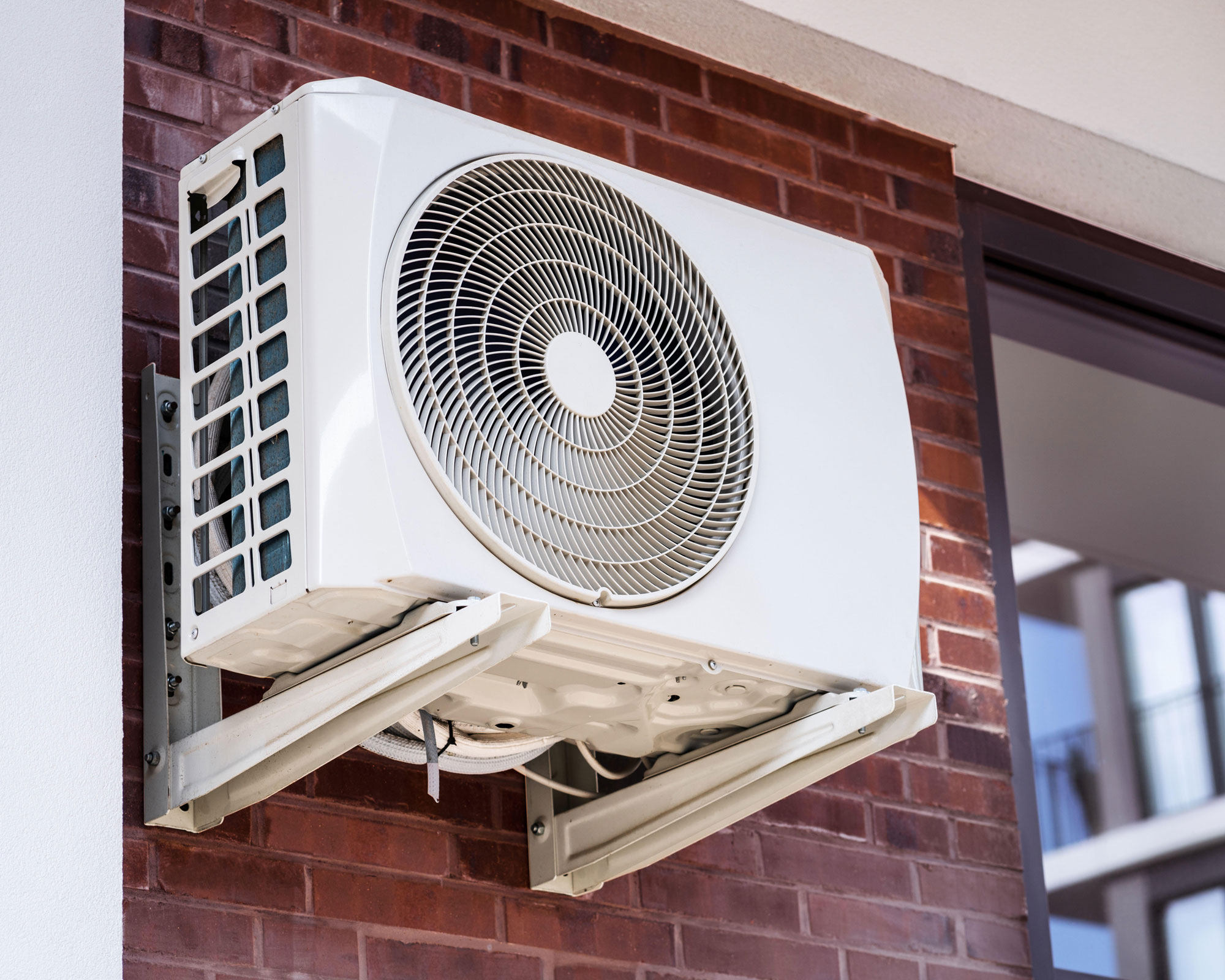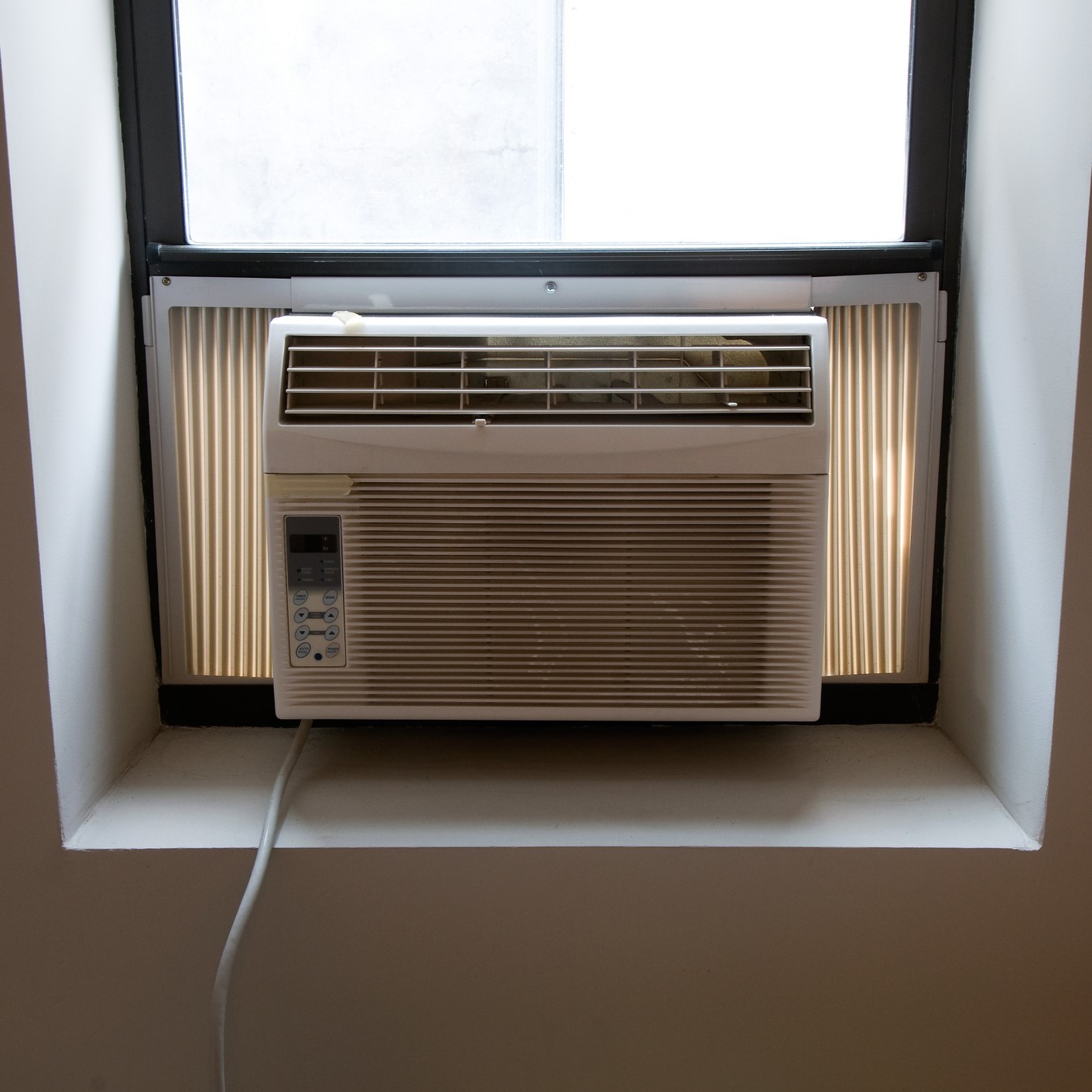Why do AC units freeze up? 4 possible causes and what to do
We spoke with HVAC specialists and electricians to find out all the potential causes for why your AC unit has frozen over, with advice on what to do next

It's clear that something's not working correctly when an AC unit freezes up. Our HVAC systems are designed to regulate temperature, so the unit itself freezing over is a sign that something needs fixing.
Because of this temperature control function, air conditioning units house components with cooling properties, like refrigerant. There are a few possible causes as to why ice can occur; however, some of them are easy to fix yourself, and others will need a professional's know-how.
Here we explain the possible causes as to why your AC unit might be freezing up.
Why do air conditioner units freeze up?
We caught up with electricians and HVAC specialists to find out all the potential issues causing your AC unit to freeze over, with advice on what to do in each instance.

Clogged air filters
‘One of the most prevalent issues is restricted airflow caused by dirty or clogged air filters," explains Robert Walden, HVAC specialist, mechanic and electrician, and founder of Vehicle Freak. ‘When filters get plugged up, it hinders airflow across the evaporator coil. This prevents the coil from properly absorbing heat from inside the home.’
This lack of airflow can naturally cause temperature issues for the AC unit, but, fortunately, checking and replacing air filters is a simple task that only takes a few minutes. Replacement air filters are available at Home Depot.
Robert advises homeowners to inspect their filters monthly during peak cooling season and switch them out whenever they look dirty. ‘Keeping filters clean goes a long way in preventing freezing problems.'
Blocked vents
‘Blocked or closed ventilation registers and dampers can also impair airflow if they aren't allowing air to circulate freely throughout the home,’ Robert says. ‘Make sure all vents are fully open so air has a clear path to flow.’
It also helps to give vents a quick wipe down occasionally to remove any dust buildup. Clear, unobstructed vents ensure your AC system is distributing air effectively, reducing the risk of freeze-ups.
Pavlo Oslam, HVAC account manager of Home Alliance, agrees that restricted airflow is a likely culprit: ‘Homeowners should regularly check and replace air filters, ensure vents and registers are open and unblocked, and keep the area around the indoor unit clear of obstructions.’
Debris on evaporator coils
‘Minor debris on evaporator coils may also cause airflow issues,’ Robert notes. "Light brushing with a soft bristle brush or vacuuming can help dislodge loose dirt." Clean evaporator coils are essential for efficient heat absorption, and keeping them free of debris can prevent unnecessary freezing. Learning how to clean an HVAC system safely is key for AC maintenance.
However, for anything more than a light clean, Pavlo recommends a professional’s expertise: ‘In the case of dirty or clogged evaporator coils, homeowners can clean the accessible parts of the coils themselves. However, for a thorough cleaning, it is best to hire a technician, as they can safely dismantle the unit and clean it properly.’

Refrigerant leaks
'Another common factor is low refrigerant levels due to leaks in the refrigerant lines or components,' Robert explains. 'Over time, small leaks can gradually seep refrigerant out of the system until it no longer has enough pressure to properly cool.'
While sealing the leaks yourself might be tempting, identifying and patching refrigerant leaks is a job for professionals. ‘Handling refrigerants requires specialized knowledge and tools, and attempting a DIY fix could be dangerous and illegal,’ says Pavlov.
‘It's worth paying for their services rather than risk harming the environment or your health,’ Robert affirms.
Other possible causes
‘Other issues like faulty thermostats, blown blower fan motors, or clogged condensate drains are generally best left to experienced technicians,' Robert cautions.
These professionals have specialized tools and training to accurately diagnose electrical, mechanical, and drainage problems that homeowners may not be equipped to manage safely. If unsure, it's best to play it safe and call a technician.
But regardless of the cause, 'taking preventative maintenance seriously goes a long way in avoiding freezing headaches down the road,' Robert explains. Schedule regular HVAC services, replace your air filters, clean safely, clear vents and coils of debris, monitor refrigerant levels, and keep drain lines open. These are all simple steps you can take to stay on top of your HVAC maintenance.
While you're waiting for your AC to be up and running again, consider one of the best fans to keep you cool, or one of the best air purifiers for healthy filtration.
Sign up to the Homes & Gardens newsletter
Design expertise in your inbox – from inspiring decorating ideas and beautiful celebrity homes to practical gardening advice and shopping round-ups.

Dan is the Home Tech Editor for Homes & Gardens, covering all things cleaning, smart home, sound and air treatment across the Solved section. Having worked for Future PLC since July 2023, Dan was previously the Features Editor for Top Ten Reviews and looked after the wide variety of home and outdoor content across the site, but their writing about homes, gardens, tech and products started back in 2021 on brands like BBC Science Focus, YourHomeStyle and Gardens Illustrated.
They have spent more than 200 hours testing and reviewing vacuums for Homes & Gardens, and have even visited Dyson's engineering labs for the full low-down of the ins and outs of our trusty cleaners.
Dan has a BA in Philosophy and an MA in Magazine Journalism. Outside of work, you'll find them at gigs and art galleries, cycling somewhere scenic, or cooking up something good in the kitchen.
-
 I used to think decorating with fruit was sickly sweet, but strawberry summer is here – and I can't get enough of this cottagecore decor
I used to think decorating with fruit was sickly sweet, but strawberry summer is here – and I can't get enough of this cottagecore decorThis delightfully juicy trend has me in a chokehold, and no one is more surprised than I
By Charlotte Olby
-
 7 tiny chores that instantly make your home look more put together without buying anything – including shopping your stash and quick decluttering
7 tiny chores that instantly make your home look more put together without buying anything – including shopping your stash and quick declutteringSimple organization can make a real impact, experts assure
By Ottilie Blackhall